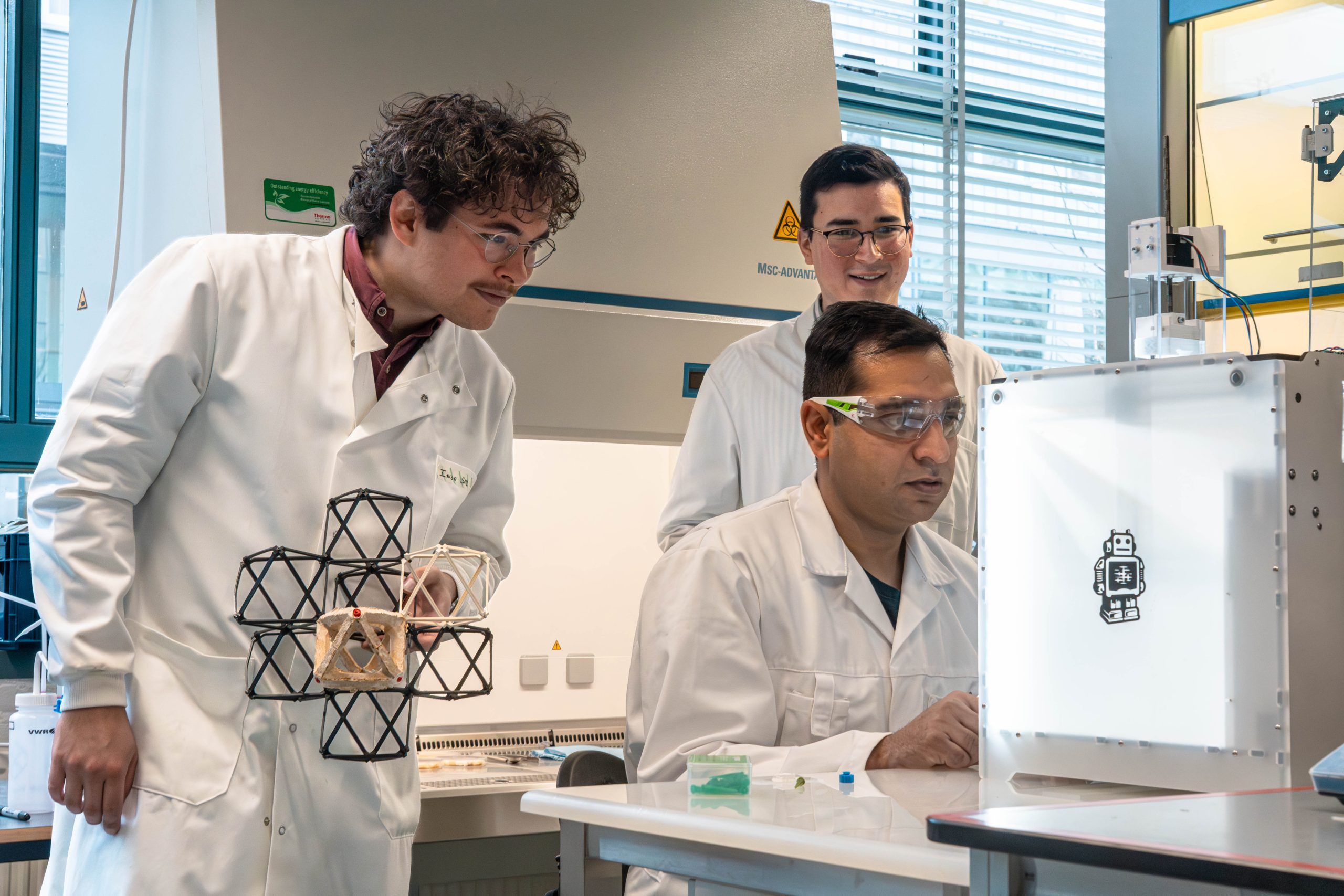Involve PhD candidates more in initiatives around improving social safety. The University PhD Council issued this call in a letter to the Executive Board on Friday 26 April. In the letter, the advocacy group shares its ideas on improving the social safety.
The people pictured are not the letter writers. (Photo: Thijs van Reeuwijk)
The University PhD council (UPC) began a letter to the Executive Board by stating that PhD candidates at TU Delft experience social safety incidents ‘disproportionately often’. Furthermore, there are more than 3,300 PhD candidates working at TU Delft. The UPC believes that these two elements together mean that PhD candidates should be involved in drafting the social safety plan of action and in the initiatives that follow.
According to the Supervisory Committee on Social Safety, a meeting was also held with the UPC, but Israel Carrete, the UPC Chair, believes that more is needed than that, he tells Delta. “We spoke to someone from the Integrity Board and someone from the Graduate School for an hour. This is far too little to get to the heart of the problems around social safety. Furthermore, we have not yet spoken directly with the Executive Board.” Carrete hopes that the letter will change this.
Expressing views and sharing ideas
In its letter, UPC introduces the idea of ‘psychological safety’, as defined by the American researcher Amy Edmondson. ‘Psychological safety exists when people feel their workplace is an environment where they can speak up, offer ideas, and ask questions without fear of being punished or embarrassed’, write the PhD candidates.
They request the Executive Board to look into the type of problems that PhD candidates face, taking their diverse backgrounds into account. PhDs come from ‘different educational, socioeconomic, and cultural backgrounds and encompass a wide range of religions, sexual orientations, genders, and age groups’, writes the UPC. This could affect the degree of psychological freedom that they experience. In its report, the Inspectorate of Education stated that many TU Delft staff members do not generally feel free to share their opinions or address colleagues on their behaviour.
Mandatory training
In its letter, UPC shares several ideas on improving social safety in both the short and the long terms. The following are a few of their recommendations.
- Mandatory training on psychological safety for staff members who are higher up in the hierarchy, such as supervisors and managers.
- More opportunities to give feedback. Not only the supervisor should be able to give feedback to the doctoral candidate, but the doctoral candidate should also be able to do this.
- Appoint social safety stewards in line with the TU Delft concept of data stewards. ‘Social stewards will be (co-)responsible for safety training, formative assessment of the psychological safety in research groups …’
- Acknowledge power dynamics. ‘There is an inherently unbalanced power dynamic in PhD-supervisor relationships. This is not necessarily bad … but if it is left unaddressed, it can make transparent conversations difficult or negatively affect PSS.’
- Improve onboarding. According to the UPC, PhD candidates often do not know who they can approach in case of problems or what their rights are. On their first day of work, give them a list of the relevant support networks, regulations and documents.
UPC closes its letter with a call to the Executive Board. The advocacy body invites the Board members to ‘contact us about this letter and the well-being of our community’.
- UPC brings attention to the interests of TU Delft PhD students, as well as organizes activities. Want to know more? Check out the intranet page.
- UPC is looking for someone who can help with communication within TU. Would you like to be involved in this? Or help UPC in another way? Then contact UPC at upc-org@tudelft.nl.
Findings of Inspectorate
The Inspectorate of Education investigated transgressive behaviour at TU Delft from December 2022 to November 2023. In the resulting report, the investigators speak of intimidation, racism, sexism, bullying, exclusion, gossiping, social insecurity due to lack of leadership and a culture of fear, among other things. For instance, employees are said to be afraid to voice their opinions and hold each other accountable for behaviour.
The effects among TU Delft employees who have reported to the inspection are often long-lasting and hampering. The inspectorate speaks of psychological and physical health complaints, absence from work and a general feeling of insecurity. Stress, burnout, depression and PTSD, crying and tense home situations also occur, as do illness, vomiting at work, panic attacks and heart palpitations.
The inspectorate reports that TU Delft’s university administration has a lot of information regarding what is happening in terms of social safety, but that they ‘omit to add everything up so as to create a complete picture’. ‘The management’ also ‘does not adequately manage in terms of appropriate measures’. The Inspectorate believes that this is mismanagement.
Read the news and background articles on the Inspectorate’s report in our dossier.
- Delta is looking for current and former TU Delft staff members who are willing to share their experiences. This can be done anonymously if preferred. Email tudelta@protonmail.com.
Do you have a question or comment about this article?
a.m.debruijn@tudelft.nl


Comments are closed.